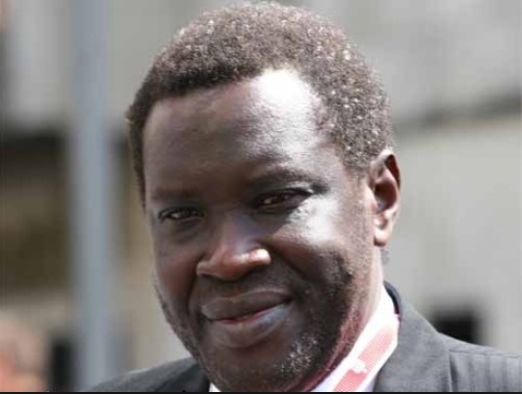The African Freedom of Expression Exchange (AFEX) writes to express grave concern about the recent crackdown on the media in South Sudan which has resulted in the killing of one journalist, the arrest and detention of an editor and the shut-down of a newspaper including other free expression violations.
On July 16, 2016, agents of the National Security Service arrested Alfred Taban, Editor in chief of Juba Monitor, an independent English language daily newspaper in South Sudan. The security service accused the journalist of inciting violence, and consequently ordered the closure of the newspaper.
The arrest followed the publication of an opinion piece on July 15, 2016 titled: Salva Kiir, Dr. Riek Machar should be removed. In the said article, Taban called on President Salva Kiir and the First Vice-President, Riek Machar, to step down saying both of them had failed to work together to improve the security situation in South Sudan.
Taban’s arrest is the second major reported act of hostility against journalists in less than a week since the latest outbreak of the conflict in South Sudan this month (July 2016). On July 11, 2016, John Gatluak Manguet Nhial, a journalist for Internews, was killed, reportedly by armed men in a hotel in Juba, the capital city of South Sudan. Media outlets in the country accused the President’s security forces of killing the journalist.
In addition to the violations cited above, there have been other equally disturbing incidents recorded earlier this year. Two journalists were abducted and tortured by unknown men in March 2016. South Sudanese journalist working with Al-Tabeer newspaper, Joseph Afendi was on March 4, 2016, abducted, tortured and abandoned in a graveyard in Juba by unidentified men. The attack came off shortly after the journalist was released after being detained for two months without charge. Prior to his attack, Afendi had reportedly published an article criticising the ruling Sudanese People’s Liberation Movement (SPLM) on the ongoing conflict in the country.
Similarly, Chan Joseph Awer, a reporter working with the Al Maugif newspaper, was found on March 1, 2016 in a bad condition along a cemetery in the outskirts of Juba. The journalist had been kidnapped, tortured and dumped at the cemetery. He was threatened to stop writing if “he valued his life”.
Aside these incidents recorded in 2016, the press freedom situation has seen a significant deterioration over the past years. According to the Reporters without Borders (RWB) World Press Freedom Index for 2015 and 2016, South Sudan ranked 125th and 140th respectively out of 180 countries monitored globally.
In 2015, the National Security Service shut down about five newspaper organisations including the Juba Monitor newspaper for reporting on issues critical of the government. The Juba Monitor had published two articles which described the unrest in the country as an “ethnic conflict” which resulted in its closure. The same year, seven journalists were reported to have been killed by unidentified armed men during the unrest in the country.
In 2014, President Salva Kiir signed into law, a bill that gave South Sudan’s National Security Service the right to monitor communications, conduct searches, seize property and detain suspects, including journalists. This law was widely criticised as giving excessive powers to the security apparatus in order to suppress free expression and other human rights in the country. The constant harassment and clampdown of the media in South Sudan has seen retrogression in the country’s free expression situation since the passage of the law as well as other recorded incidents of free speech violations.
Since the outbreak of the civil war in December 2013, the media and journalists in South Sudan have been operating under dangerous conditions.
The incidents of violations mentioned herein, among others, could have a chilling effect on free speech in the country. AFEX finds this worrying, as these acts of intimidation lead to self-censorship by journalists in reporting on critical issues. The media in South Sudan plays a key role in promoting citizens’ rights to access information during the conflict and should therefore be allowed to operate freely without interference from the country’s authorities. South Sudan’s government should intervene to promote, protect and defend freedom of expression as well as ensure the safety of journalists in the country.
AFEX appeals to the President of the Republic of South Sudan, Salva Kiir, to use his good offices to order the National security service to release veteran South Sudanese journalist, Alfred Taban and allow the newspaper to operate freely in the country. We urge President Salva Kiir and First Vice-President, Riek Machar, to publicly condemn the arrest of the journalist in order to demonstrate their commitment to press freedom as well as ensure that press freedom rights are respected and observed as required by international law and the national constitution of South Sudan.
AFEX also urges the authorities in South Sudan to independently and thoroughly investigate the killing of journalist, John Gatluak Manguet Nhial, and punish the perpetrators accordingly.
We call on the National Security Service to desist from arbitrarily interfering in the work of journalists and rather ensure their safety in carrying out their duties.




